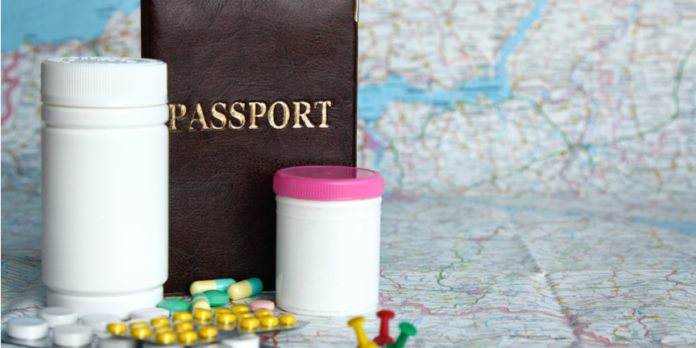Going on holiday can be a wonderfully exciting time and one that usually promotes a sense of relaxation at the mere thought of going away. However, depending on who you’re going with, where you’re going, and even you as a person can mean it is a bit of a stressful process with many things to sort out. From travel insurance to when it arrive at the airport, to thinking about every single scenario and the appropriate outfit, not to mention toiletries, it can be overwhelming.
If you’re someone who takes regular medication for any number of medical issues, then packing it will possibly be second nature. This could be for any number of ailments such asthmas, diabetes, heart disease or high blood pressure and you may not regard them as a huge barrier in your daily life but that’s not always the case when you are travelling abroad.
You may well know how much of your medication to put in your hand luggage and how much extra to consider taking in the event of delays or losing any part of your luggage. You may well even remember to order more in advance of your departure. What if that’s not it though? What if there is another couple of things to add to the ‘to do’ list to ensure you don’t encounter any issues when you go away? Taking regular medication should not prevent you from enjoying a stress-free holiday so just make sure you consider everything!
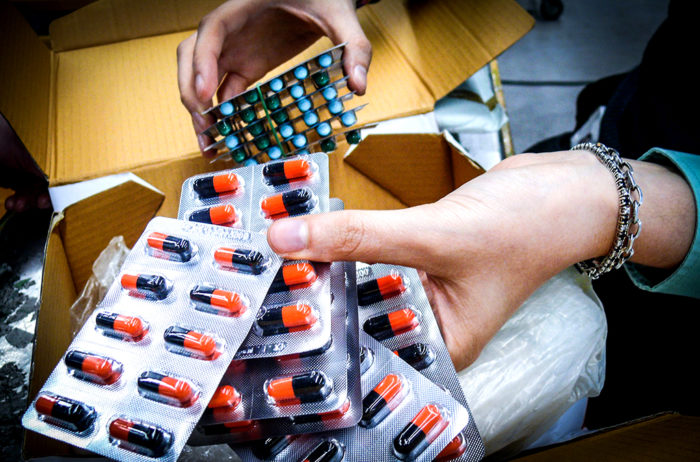
Why do I need to think about it?
Our world is very diverse, and so are the rules and regulations within each country. This extends as far as all the products that we bring with us – what is legal and accepted in one country may not be allowed in another, so you need to check. In some instances, you will even need a letter of authority to transport your meds into another country. We would always recommend you contact a specialist at an Click Pharmacy if you need some advice.
Our checklist of actions:
1. Check the country/countries you are going to
As mentioned, there are different rules and regulations for each country regarding which medicines and what amounts they allow into the country, so it is imperative you check what they are wherever you are visiting.
Don’t forget, if you have any stops en route, your luggage still needs to enter those countries as well so even though you may not be staying there for any length of time, you must still observe their rules!
This is true of controlled drugs but in some cases will also apply to medicines which are not classified as controlled and might be available without a prescription in the UK.
You don’t want to find yourself being arrested and questioned at the start of your trip so in order to be sure, we recommend always checking government advice via either the Foreign Embassy of the country to be visited or by with the FCO.
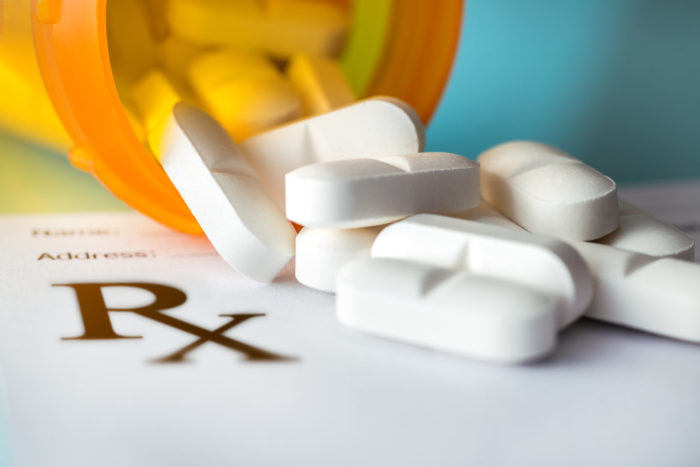
2. Look at what drugs you take
Some medicines contain what are known as ‘controlled drugs’ and they are listed by the government as Schedule 1, 2, 3 and 4. These controlled drugs can appear in a variety of medication that you might not consider to be particularly potent but they can appear in anxiety medication, sleeping tablets, strong painkillers, ADHD pills and much more besides.
Whatever it is you are taking you should check with your expert at Click Pharmacy to see if it contains any such controlled drugs so you make the right preparations. For example, it is not usually legal to travel with Schedule 1 drugs but you can usually travel with Schedule 2, 3 and 4 if you ensure you have a letter from the doctor who prescribed it. This letter should include your name and address, where you are visiting, details of your prescription (medicines/doses/strengths) and the signature of the doctor.
Alternatively, if you’re travelling for 3 months or longer, you can apply for a license from the government. You’ll need to send the same doctor’s letter in with your application.
3. Check the storage of your medicines
Some medicines can be volatile and must be stored in certain ways. Do they need to be refrigerated, for example, or at least stored below a specific temperature? Hot temperatures might damage the ingredients which could cause harm or limit their effectiveness so investigate whether you need to take it in a flask or ask for it to be refrigerated on the plane.
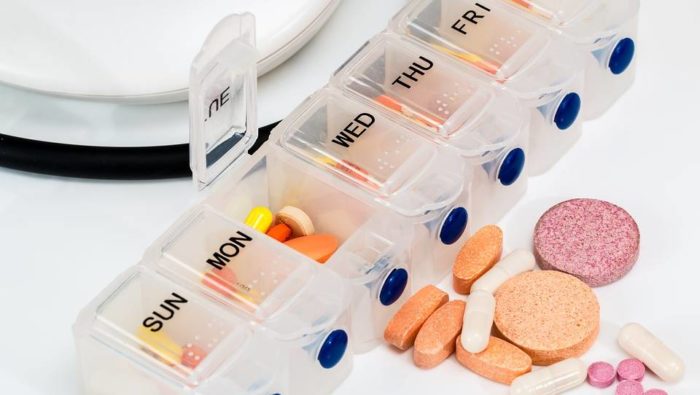
4. Pack your medicines in your hand luggage
Don’t worry – the usual rules on liquid quantities don’t apply here! The rules allow you to take all your medication on board however it is always better to check with the airline to avoid any issues at the airport.
In order to further remove any problems, it is essential you have a letter from your doctor explaining your need for the medication, how much you take and where you’re travelling etc. This should avoid any confusion at any of the borders you may cross.
It is much safer to carry your medication and equipment in your hand luggage in case your suitcase gets lost. Consider putting spares in your suitcase though in the unfortunate event of losing your hand luggage!
5. Ensure the medication is in its original packaging
Couple with your letter or licence, this will make it clear to the authorities you are legitimately transporting the products.
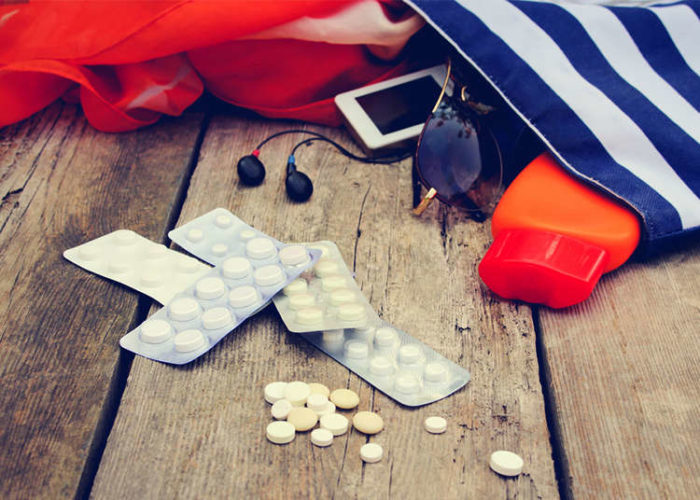
6. Ensure you take enough to last your whole trip, maybe with some spares too
It goes without saying you need to make sure you have enough!
So while not mandatory in many countries, it is advisable to always take a letter from your GP with you to explain your medication. It should state the details of the medicine (including the generic term and not just the brand name) and the condition for which you take it. Doctors can charge for providing such a letter, but it will be money well spent not just for the journey. It could also be useful in the destination as it could help medical professionals treat you in the event of an issue, particularly if you get it translated into the native language.
Don’t let taking regular medication inhibit your holiday dreams. You are free to travel as you please in good health too with the right planning and preparations. If in any doubt, contact the experts who will be happy to advise. Bon voyage!

